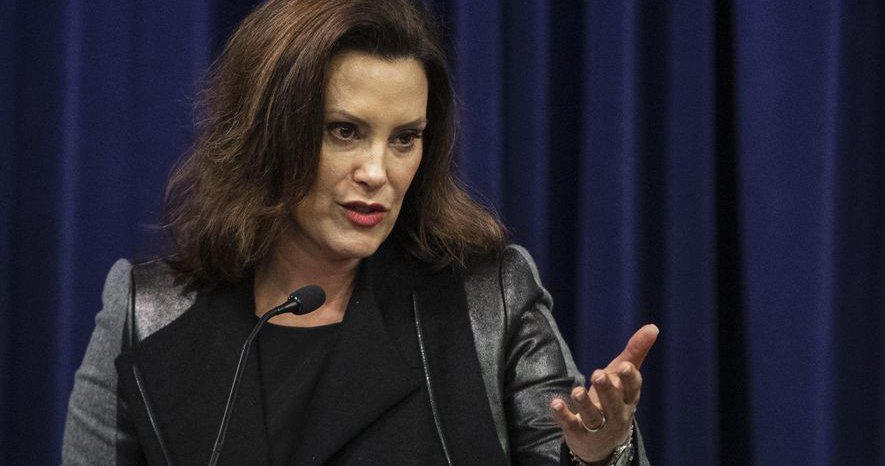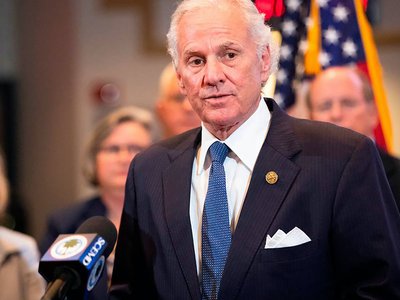Michigan's jobless aid agency lost more than $8.5 billion to suspected fraudulent payments amid record claims and persistent attempts at fraud during the pandemic, according to a report issued Wednesday.
The state's fraud total includes nearly $2.8 billion in imposter fraud or claims involving stolen identities, nearly $5.7 billion in likely intentional misrepresentation cases or claims involving false statements or documents. Additionally, a recent audit identified about $3.9 billion in ineligible payments due to a state error in eligibility criteria, but the agency believes a portion of that $3.9 billion overlaps with the intentional misrepresentation number.
The tallies are huge increases from prior estimates, including an audit in November 2020 that pegged fraud losses at "hundreds of millions."
The agency has paid a total of $39 billion in unemployment aid to 3.4 million Michigan residents since March 2020 so the fraud losses account for more than 20% of pandemic payments.
“It’s extremely disheartening that bad actors have defrauded the much-needed benefits intended for hard-working Michiganders and the scale of their actions is stunning,” UIA Director Julia Dale said. “We have been successful over the past year in limiting the percentage of cases that are fraudulent to less than 1%, but we will never stop fighting for our workers.”
The report was released Wednesday by Gov. Gretchen Whitmer and Dale as they noted a marked decrease in fraud cases, increased fraud detection practices and an executive order making permanent a pandemic-era Unemployment Insurance Fraud Response Team, which coordinates prevention and detection efforts among state agencies and law enforcement.
“While we are seeing increased success in identifying and stopping fraudulent claims, we cannot let up," Whitmer said in a statement. "We owe it to workers to make sure this jobs resource is available when they need it the most."
Federal funds made up 97% of the $8.5 billion lost and state money made up nearly 3%. So far, the U.S. Department of Labor has made no public statement indicating the state would have to make up any of those funds.
In November, the federal department said states across the U.S. faced challenges implementing new federal unemployment programs and said officials are working to determine "what, if any, retroactive action is needed" regarding states' implementation of the federal programs.
The House and Senate Oversight committees plan to hold a joint hearing on the reported fraudulent payments.
House Oversight Chairman Steve Johnson estimated the fraud losses combined with $3.9 billion in payments due to agency error brought the agency's total to roughly $12 billion in losses.
The report was troubling, said Johnson, a Wayland Republican. But so was the agency's release of the information in between holidays, its attempt to shift attention to recent improvements rather than past failures and its efforts to highlight that the majority of money lost was federal, he said.
"Those are taxpayer dollars we have entrusted the agency to handle," Johnson said. "If you had someone doing that with a private company and being that loose with funds, they could be charged and go to jail.
"I’m seeing once again a pattern of trying to dismiss these failures, and I think we’re going to see no consequences, no accountability, no changes."
$8.5B in fraudulent payments
The losses identified in Wednesday's report indicate the roughly $8.5 billion in claims paid on likely imposter fraud and intentional misrepresentation claims occurred between March 1, 2020, and Sept. 20, 2021. The majority of those payments occurred between March 2020 and October 2020.
The bulk of the losses included federal funds, with an estimated 2.9% of those payments coming from state-funded unemployment claims.
The agency currently is subject to three separate federal audits — an annual financial audit and two performance reviews related to the agency's implementation of the federal jobless aid program. The performance reviews are being performed in other states and are not unique to Michigan, said Nick Assendelft, a spokesman for the agency.
The losses resulted from a confluence of circumstances at the beginning of the pandemic as claims skyrocketed, new federal programs were implemented in a matter of days, unemployment staff were transitioned to remote work and fraudulent claim attempts were rampant.
During that time, the agency made a series of changes as it implemented the new federal COVID-19 jobless programs that made it more susceptible to fraud. One of those changes intentionally allowed payments to be made without the usual identity verification procedures ahead of the payment as employees worked to address a growing backlog. And another caused a glitch in the computer's fraud management system in May 2020 that the agency has said — and a 2020 audit confirmed — led to the majority of fraudulent payments.
In one such case, because of the glitch, a fictional Kimberly Kardashian was able to file from an address in Traverse City and, within two days, get eight weeks of backdated unemployment pay — more than $7,000 — before the state's fraud management software flagged the claim as needing additional identity verification.
Dozens of federal criminal cases have also alleged individuals gamed the system by filing under stolen identities, by working with part-time pandemic contractors within the agency, by funneling the money through debit cards and middlemen, and by even going so far as to call legislators seeking help to expedite a fraudulent claim on the premise that it was legitimate.
The U.S. Department of Labor in October said it had not yet estimated the improper payment rate for unemployment benefits nationwide during the pandemic. But it has averaged above 10% for 14 of the last 17 years, the department said.
"As of January 2, 2021, based on a conservative improper payment rate of 10 percent, we estimated that at least $39.2 billion in UI improper payments — including fraud — was at risk of not being detected and recovered," the department wrote. "Estimates for the CARES Act and its related extensions range up to $873 billion; therefore, by program end, $87.3 billion in UI benefits could be paid improperly, with a significant portion attributable to fraud."
Addressing the issue
Since the Unemployment Insurance Fraud Response Team was formed under Attorney General Dana Nessel in June 2020, about 54 Michigan residents have been charged with unemployment fraud, according to the state.
Additionally, Wednesday's report estimated the agency prevented about $43.7 billion in fraudulent claims between March 2020 and September 2021.
Wednesday's executive directive cements some of the measures already taken by the agency, such as using the agency's fraud management software to detect anomalies for additional review, identifying foreign IP addresses or suspicious email domains, conducting daily reviews of claims activity and retaining experts to analyze and "counter criminal attacks."
The directive also calls for a modernized IT system, an "aggressive" training regimen for staff, using "human-centered, plain language" when communicating with claimants, and participation in a federal anti-fraud program.
The state's recent anti-fraud programs have cut cases of intentional misrepresentation and imposter fraud to 0.57%, the state said, which is lower than Michigan's rate before the pandemic of 2.01% between July 2017 and July 2020.
The ineligible payments
Apart from those benefits fraudulently taken, Michigan also paid out about $3.9 billion in pandemic jobless aid to individuals who were later determined to be ineligible because of an agency error.
Those determined to be ineligible fall into a few different categories.
A large chunk of those who were sent overpayment letters are included in the 648,100 notices sent out in late June notifying recipients that they had selected one of four qualifying criteria for Pandemic Unemployment Assistance that the state had incorrectly listed on the application. The U.S. Department of Labor flagged the issue for months before the state finally reached out to those affect in June, according to emails and a state audit.
Because some of those individuals during re-attestation have been unable to prove "attachment to the work force," the report assumed a portion of the individuals who marked the ineligible state criteria also misrepresented themselves on their application, Assendelft said. That creates some overlap between the $3.9 billion in payments because of the state error and the $5.8 billion total loss related to likely misrepresentation cases.
When the letters were issued in June, Whitmer said she would issue waivers for those individuals affected by the state error. Those who failed to re-attest to their qualifications were issued waivers automatically, but thousands others who attempted to re-attest had to go through additional verification and appeal steps.
Thousands of other claimants issued repayment notices don't fall into the ineligible criteria category. Instead, some made a mistake early in the process that wasn't caught until months later because of delayed verification reviews by the agency.
By the time the mistake was caught, individuals had spent the unemployment money and were unable to meet the state's repayment demands.
Advocacy groups have pleaded with Whitmer to expand the waivers for those later deemed "ineligible" and, last week, Whitmer said she was working with the federal government to do so.






